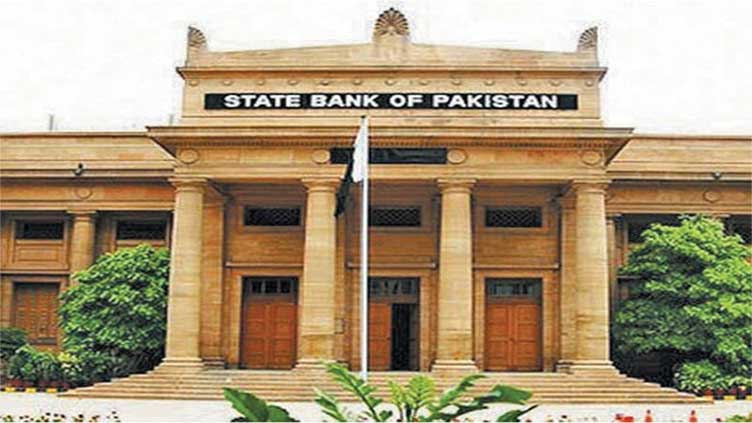SBP slashes policy rate by 100bps to 11pc

Business
MPC reviews the overall financial and fiscal situation
ISLAMABAD (Dunya News) – The State Bank of Pakistan (SBP) Monday cut the policy rate by 100 basis points (bps), bringing it down to 11 percent.
In a statement, the State Bank of Pakistan (SBP) announced that the Monetary Policy Committee (MPC) decided to reduce the interest rate, citing the lower-than-anticipated April inflation — largely the result of falling prices in perishable foods and energy.
April recorded a modest inflation rate of just 0.3%, mainly due to the high comparison base from the previous year.
This decline was driven by reduced prices of essential food items like wheat, onions, potatoes, and some pulses, along with lower electricity and fuel costs.
Since these goods hold considerable weight in the Consumer Price Index (CPI), even slight changes in their prices can significantly impact overall inflation.
The MPC reviewed the overall financial and fiscal situation, major economic indicators, data of different sectors, and major developments taken place since the announcement of the previous monetary policy.
Read also: SBP keeps policy rate unchanged at 12pc
The MPC, in its previous meeting on March 10, 2025, adopted a cautious approach and kept the policy rate unchanged at 12 percent, taking inflation expectations and the position of the external account into consideration.
The committee had noted the improvement in economic indicators, including current account balance, inflation, external inflows, monetary management, and foreign reserves, but it was cautious about inching up of inflation in subsequent months as well as uncertainties in the global economic policy environment.
Considering the developments and evolving risks, the MPC had also stressed the need for continuing fiscal consolidation to ensure price stability, which is essential for sustainable economic growth.


